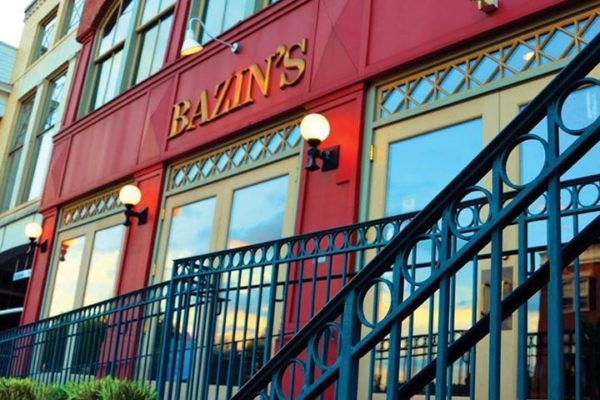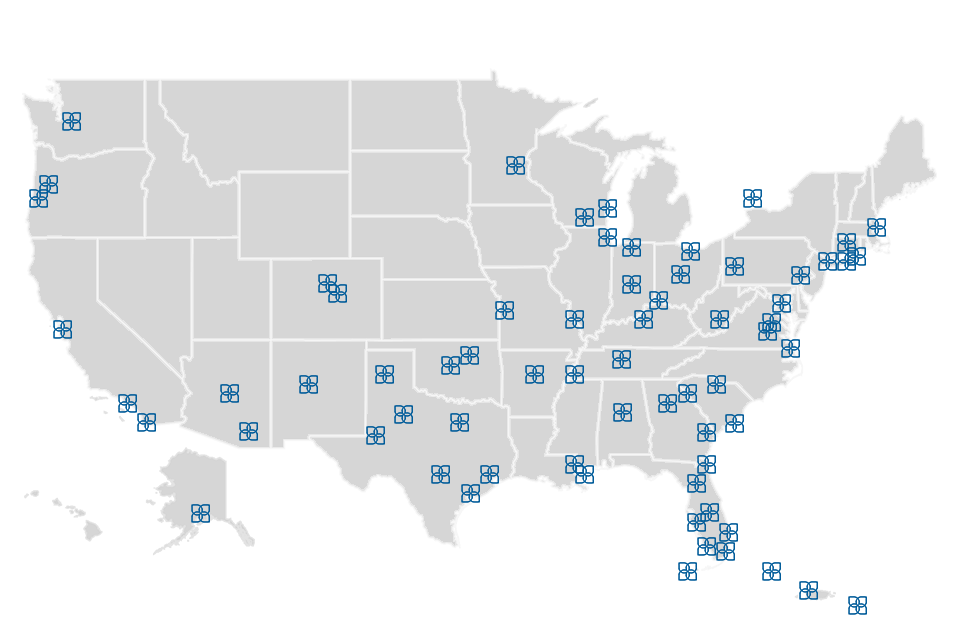Summer 2020 Lodging Investment Roadmap
Posted August 12, 2020
OUR INDUSTRY IS INARGUABLY IN THE MIDST OF ITS MOST CHALLENGING TIME ON RECORD.
Despite the dire headlines, historically low performance figures and ongoing uncertainty, hoteliers continue to demonstrate the resilience and creativity for which the hospitality industry has come to be known. While we can be certain that this period of turmoil will eventually end, it’s yet to be seen whether it will worsen before getting better. That said, we’re beginning to see indications that transactions are picking up as investors and lenders venture toward a path to recovery.
This edition of our Lodging Investment Roadmap reflects many of the recurring themes that have come up during our conversations with clients and industry colleagues over the last several weeks. We’ve answered some common questions and examine what could be ahead for lodging investments. We hope this Roadmap will be helpful to you and your team, and we welcome the opportunity to speak with you about any of the topics within.
HAVE DISTRESSED HOTEL SALES BEGUN, AND IF SO, WHO AND WHAT IS SELLING?
In previous distressed economic periods, it has typically taken loan covenants to be breached and cash flows to drop to levels that don’t support debt service. Given the speed at which the COVID-19 pandemic progressed, we are well past that point. Many borrowers were in financial default by late March, and since then, a number of lenders have already become “forced owners.” Special servicer portfolios continue to grow exponentially, well beyond levels seen after 9/11 and the Great Recession, particularly with defaulted retail and hotel loans. That said, it will take a few more months before most banks and their borrowers work through defaults and dispositions begin in earnest. It will take even longer for CMBS servicers. Lenders and special servicers are not yet desperate, but they soon will be, and a tsunami of distressed sales are on the horizon, likely surging in the fourth quarter and early next year.
The initial hotel performance recovery has been and will continue to be in hotels situated in leisure-oriented markets. Hotels that cater to business transient guests will be next, and, finally, group hotels will take the longest to recover. Hotels within a four- to six-hour drive of major population centers will fare better and continue to be more attractive to investors. Larger group hotels will be out of favor with investors unless accordingly discounted for sale. In terms of segmentation, Select Service is performing better than Full Service, which is outperforming Luxury. A number of trades are being facilitated through seller financing, including debt provided by lenders with defaulted loans.
HOW ARE LENDERS REACTING TO THEIR TROUBLED LOANS?
First, we should state that virtually no commercial lenders favor taking back properties. That said, some of the more well-heeled institutional lenders that have larger balance sheets may take assets back and hold their “newly acquired” hotels until the market stabilizes and prices improve. Real estate is a key holding for many investors such as life insurance companies and debt fund sponsors who diversify from stocks, bonds, and cash. Many of those companies already own hospitality assets and are quite comfortable with the asset class. Lenders such as PNC and Starwood, who also own servicing divisions, may have the opportunity to play offense, although they’d likely avoid actually adding a hotel to their balance sheet.
Hotel loan modifications by banks and debt funds have thus far been swift. FDIC-governed traditional banks have been given quite a bit of latitude. In addition to the several trillion dollars of financial support, the Fed has also bolstered a great degree of patience into the system. Things are quite different with CMBS loans where there is much less direct communication. On the whole, a number of loan executives who have lived through previous downturns know that taking back, holding, and then disposing of hotels is an awfully expensive and resource-draining strategy. As such, we expect lenders to lower their risk and pain through note sales and by extending existing loans.
WILL THERE BE ANYTHING BUT FORECLOSED ASSETS ON THE MARKET OVER THE NEXT YEAR?
The answer is yes, of course. First, there are certain closed-end funds that are maturing and will need to liquidate. While liquidation extensions are possible via fund documents, these are typically only one to two years. If a fund has already extended their maturity, then they will be required to sell and distribute proceeds. Second, there are a number of owners with performing assets who have no current debt encumbrance. We are already seeing a number of those owners sell now, with some offering seller financing. In fact, at present, The Plasencia Group is marketing several seller-financed hotels that have been gradually improving.
WHO IS BUYING?
There are historic levels of capital ready to buy distressed hotel assets, but the pain has not yet ramped up enough to stimulate vigorous transaction activity. There is ample capital available seeking attractive purchase opportunities, yet most of those investors are still sitting on the sidelines and aren’t really stepping into the markets. That sends a clear message that we have not yet hit bottom. Buyers are looking for major bargains and sellers are still holding out hope that pricing will soon return to levels close to those before the pandemic. We expect more and more international capital to invest in U.S. hotels. The same factors that have attracted foreign investors for decades, namely rule of law and transparency, continue to render the U.S. the most attractive market in the world. Domestically, family offices and high-net-worth investors are buying hotels that should provide unlevered returns at levels they are not able to achieve in other investment vehicles. Further, a number of hotel REITs are well-positioned to acquire larger hotels or portfolios of properties utilizing corporate rather than asset-level debt.
HOW WILL THE TIDAL WAVE OF DISTRESSED ASSETS AFFECT HOTEL PRICES?
As expected, hotel prices are falling. According to Real Capital Analytics, hotel prices declined 28.5% in the first quarter of 2020 as compared to the same period in 2019. Despite this, recent movement in the public markets indicate that hotel REIT stock prices are actually on the rise. On average, hotel REITS are still down over 50% from their highs last year, but lodging REIT Index prices have recovered by 48.5% from their recent COVID-induced lows. We expect a flood of assets will be up for disposition, especially through CMBS foreclosures, late in 2020 and throughout 2021. Along with this influx of deals, there will also be an unprecedented amount of capital competing for these deals, which could cause upward pressure on pricing.
ARE BUYERS ABLE TO FIND DEBT TO ACQUIRE OR REFINANCE HOTELS?
Credit markets are almost completely closed, and, for the most part, distressed commercial real estate assets have not begun to trade in earnest. We expect that to change towards the end of this year as lenders begin to take back assets and offer them to the investor community, likely with seller financing. If an owner should need to refinance a maturing hotel loan, almost no refinancing capital is available on the open market, except very expensive bridge debt. In a few cases, the existing lender may provide an extension, likely requiring at least a ten percent to fifteen percent pay-down on principal and an increase in interest rate. A borrower may not currently have the cash needed to reduce principal, raising the specter of foreclosure or possibly relinquishing an interest in the hotel as part of a major restructuring that would include new external equity.
HOW HAVE THE MAJOR BRANDS BEEN AFFECTED?
Seismic changes are already taking place in the way the major international hotel brands will be structured and will likely operate in the future. These companies, many of which have derived a good portion of their revenues from management fee streams, find themselves in the penalty box as a result of their business model. Look for companies such as Hilton, InterContinental, Marriott, and others to vastly restructure their organizations and transform themselves into a franchise license-only model, where a greater share of their revenue is derived from franchise fees rather than management fees. Additionally, centralized or shared services are being restructured, with more of the workload and the staffing being returned to the property level in an effort to reduce corporate overhead.
WHEN WILL THE HOTEL INDUSTRY KNOW IT IS ON THE PATH TO RECOVERY?
The recovery has actually already begun, as evidenced by Leisure demand growth, particularly in coastal, mountain and destination venues. The signal that the full recovery is well under way will occur when there are no longer concerns about traveling by air freely domestically and internationally. Group business also needs to come back for the recovery to accelerate. When that will happen remains unclear, but we expect Group demand to meaningfully lag Corporate Transient demand by six to twelve months. The fact remains that there is confidence across the globe that there will be an end to this pandemic, thanks to the anticipated introduction of vaccines and therapeutics.
On the Road: Bazin’s On Church
111 Church St NW, Ste 103, Vienna, VA | bazinsonchurch.com
Located in Vienna, Virginia, this contemporary icon was created and is operated by a local husband and wife team, Julie and Patrick Bazin. The eatery, celebrating its 20th anniversary, has adapted to new protocols as the result of the COVID-19 pandemic, offering a to-go menu and now an outdoor patio. Bazin’s remains a favorite of locals and their guests alike.
What to Order: Patrick’s proficiency in the kitchen shines through with his most famous dish: the maple-miso Chilean sea bass served over baby spinach and wasabi mashed potatoes with a tamari-ginger sauce.
Suggested by:
Suggested by: C.A. Anderson | (860) 573-7744 | ca.anderson@tpghotels.com
On the Road, Hometown Edition: Eating out looks a little different these days, so we’ve shifted the focus of our reviews from establishments across the country to neighborhood restaurants offering outdoor dining and takeout options that our team has enjoyed in the last few months. We welcome your contributions and encourage you to submit your favorite local spot by visiting tpghotels.com/on-the-road.
Introducing Doug Mills
Doug Mills leads the firm’s growing development management consulting team. He oversees advisory and consulting services related to clients’ renovations and ground-up developments, including brand conversions, property improvement plan implementations, project management, and financial reporting.
Prior to joining The Plasencia Group, Doug was president of Schulte Design + Construction, a division of Schulte Companies and a highly esteemed hospitality design, construction and project management firm based in Louisville, Kentucky. During his five-year tenure as President, he oversaw dozens of significant renovations and upgrades at top hotels across various brands and chain scales throughout the United States. His redevelopment project portfolio includes the Westin San Francisco, the Renaissance Vinoy in St. Petersburg, the Moxy New Orleans and the Renaissance Des Moines. In addition to completing numerous hotel projects, over the course of his 30+ year career Doug has managed well over one hundred substantial developments across various asset classes, ranging from a new terminal at Macau International Airport in China, to Fort Bonifacio Global City, a $5 billion redevelopment project in the Philippines, to rolling out a new fast-casual restaurant chain in markets across the U.S.
Doug earned a Bachelor of Arts in Architecture from Tulane University and a Masters of Business Administration from the school’s A.B. Freeman School of Business. He is married, has three children and resides in St. Petersburg, Florida. You can drop Doug a note at dmills@tpghotels.com or call him at (813) 445-8324.

Doug J. Mills
Senior Managing Director –
Development Management Consulting
Lodging Investment Roadmap Summary
Our team stands ready to assist you not only with investment advisory services, but also with loan workouts, note sales, refinancing, asset management and development management consulting. Our experience through several market cycles can add value to forthcoming decisions regarding your current and future hotel and resort portfolio.
For more information on how we’re assisting our clients through this cycle, please visit the Lodging Crisis Strategies page of our website at tpghotels.com/crisis. There you can find details on the services we’re providing to owners, investors, lenders, servicers and others with hotel interests. Please don’t hesitate to contact any member of our team. Until then, we hope you and your families remain happy, healthy and safe. We look forward to speaking with you soon!





